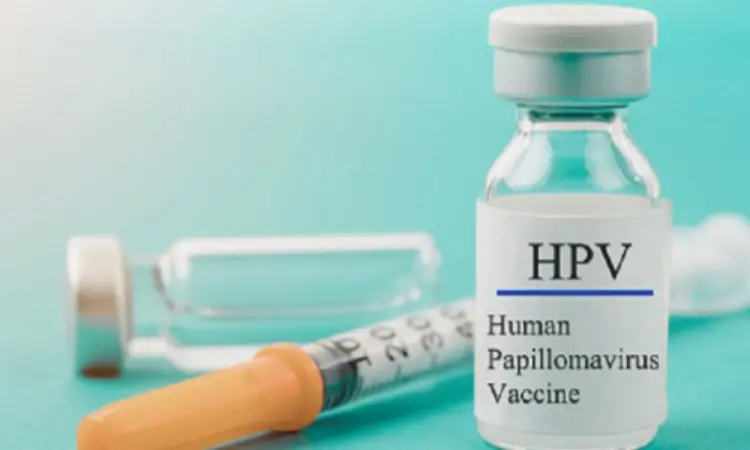- Home
- Medical news & Guidelines
- Anesthesiology
- Cardiology and CTVS
- Critical Care
- Dentistry
- Dermatology
- Diabetes and Endocrinology
- ENT
- Gastroenterology
- Medicine
- Nephrology
- Neurology
- Obstretics-Gynaecology
- Oncology
- Ophthalmology
- Orthopaedics
- Pediatrics-Neonatology
- Psychiatry
- Pulmonology
- Radiology
- Surgery
- Urology
- Laboratory Medicine
- Diet
- Nursing
- Paramedical
- Physiotherapy
- Health news
- Fact Check
- Bone Health Fact Check
- Brain Health Fact Check
- Cancer Related Fact Check
- Child Care Fact Check
- Dental and oral health fact check
- Diabetes and metabolic health fact check
- Diet and Nutrition Fact Check
- Eye and ENT Care Fact Check
- Fitness fact check
- Gut health fact check
- Heart health fact check
- Kidney health fact check
- Medical education fact check
- Men's health fact check
- Respiratory fact check
- Skin and hair care fact check
- Vaccine and Immunization fact check
- Women's health fact check
- AYUSH
- State News
- Andaman and Nicobar Islands
- Andhra Pradesh
- Arunachal Pradesh
- Assam
- Bihar
- Chandigarh
- Chattisgarh
- Dadra and Nagar Haveli
- Daman and Diu
- Delhi
- Goa
- Gujarat
- Haryana
- Himachal Pradesh
- Jammu & Kashmir
- Jharkhand
- Karnataka
- Kerala
- Ladakh
- Lakshadweep
- Madhya Pradesh
- Maharashtra
- Manipur
- Meghalaya
- Mizoram
- Nagaland
- Odisha
- Puducherry
- Punjab
- Rajasthan
- Sikkim
- Tamil Nadu
- Telangana
- Tripura
- Uttar Pradesh
- Uttrakhand
- West Bengal
- Medical Education
- Industry
HPV Vaccination Promising in Reducing Actinic Keratosis Burden: VAXAK Trial Findings

Denmark: A recent randomized clinical trial, VAXAK, has highlighted the potential benefits of human papillomavirus (HPV) vaccination in managing actinic keratosis (AK), a prevalent precancerous skin condition. The study findings, published in JAMA Dermatology, suggest that standard alphapapillomavirus vaccination could reduce the burden of AK among immunocompetent individuals with multiple lesions.
Actinic keratosis, commonly seen in fair-skinned populations, is a chronic and recurrent condition primarily caused by prolonged exposure to ultraviolet (UV) radiation. The researchers note that while current treatment options include topical medications, cryotherapy, and photodynamic therapy, recurrence remains a significant challenge.
Observations indicate that HPV vaccination may have potential therapeutic and preventive benefits against AK and keratinocyte carcinomas (KCs). Considering this, Emily Wenande, Department of Dermatology, Copenhagen University Hospital–Bispebjerg and Frederiksberg, Copenhagen, Denmark, and colleagues aimed to examine the impact of HPV vaccination on disease burden in immunocompetent patients with multiple AK lesions.
For this purpose, the researchers conducted the VAXAK trial, a parallel-design, double-blind, randomized sham-controlled clinical study at Bispebjerg University Hospital, Copenhagen, from May 2021 to June 2024. Immunocompetent adults with 15 or more AK lesions in a defined test area were enrolled and randomized 1:1 to receive either a 9-valent alphapapillomavirus vaccine or a sham vaccine at 0, 2, and 6 months. Thick AK lesions underwent cryotherapy at months 6 and 9, with no other treatments administered.
The primary outcome was the percentage reduction in baseline AKs, while secondary measures included total lesion count, new AKs, thick lesions, and incident keratinocyte carcinomas over 12 months.
The following were the key findings of the study:
• Out of 163 screened patients, 70 participants were enrolled, with 69 completing the study.
• The median age of participants was 75.5 years, and 67% were male.
• The HPV-vaccinated group showed a consistently higher reduction in AK burden than the sham group over time:
• Month 2: 35% vs 25%
• Month 6: 47% vs 29%
• Month 9: 58% vs 42%
• Month 12: 58% vs 47%
• Total AK numbers were lower in the HPV-vaccinated group at:
• Month 6: 14 vs 17
• Month 12: 10 vs 16
• There were fewer thick AKs in the HPV-vaccinated group:
• Month 6: 5 vs 6.5
• Month 12: 3 vs 5
• No significant differences were noted in new AK development (1-2 per month) or keratinocyte carcinoma incidence over 12 months.
The researchers demonstrated that standard HPV vaccination effectively reduced AK burden in immunocompetent individuals with multiple lesions.
"While its impact on skin cancer development remains uncertain, their findings suggest that HPV-targeted vaccines could be valuable in managing AK, a chronic and relapsing condition, that represents the most common precancer in fair-skinned populations," they concluded.
Reference:
Wenande E, Hastrup A, Wiegell S, et al. Human Papillomavirus Vaccination and Actinic Keratosis Burden: The VAXAK Randomized Clinical Trial. JAMA Dermatol. Published online March 06, 2025. doi:10.1001/jamadermatol.2025.0531
Dr Kamal Kant Kohli-MBBS, DTCD- a chest specialist with more than 30 years of practice and a flair for writing clinical articles, Dr Kamal Kant Kohli joined Medical Dialogues as a Chief Editor of Medical News. Besides writing articles, as an editor, he proofreads and verifies all the medical content published on Medical Dialogues including those coming from journals, studies,medical conferences,guidelines etc. Email: drkohli@medicaldialogues.in. Contact no. 011-43720751


